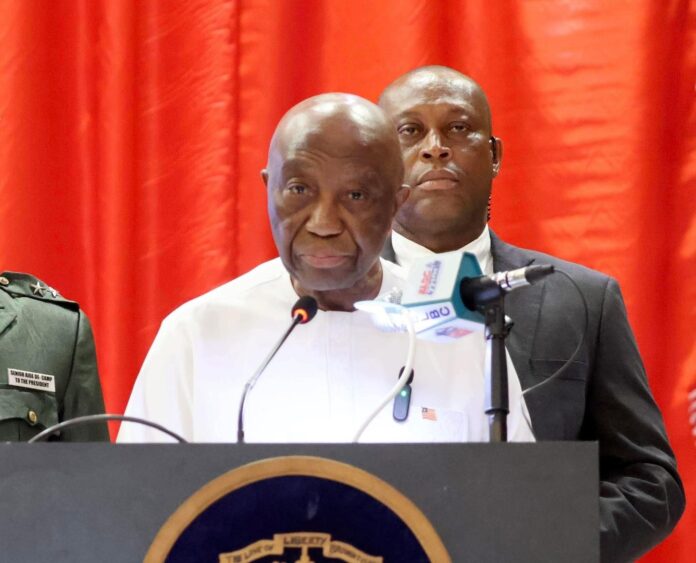President Joseph Nyuma Boakai has issued a formal apology on behalf of the Liberian state to victims of the country’s civil conflict, describing it as a critical step in Liberia’s journey toward national reconciliation, healing, and unity. Speaking at the official launch of the National Reconciliation, Healing, and Unity Program held at the EJS Ministerial Complex in Monrovia, the President acknowledged the failures of past governments and promised that the state would never again abandon its citizens.
The program brought together lawmakers, diplomats, civil society leaders, youth groups, and survivors of the conflict. In his remarks, President Boakai emphasized that the wounds of war are still fresh in many Liberian families and communities and that true reconciliation cannot take place without truth, justice, and public accountability. He said the event was meant not only to reflect on the painful history of Liberia but to commit collectively to rebuilding a future defined by peace, dignity, and justice.
President Boakai announced a series of actions to support the healing process, including the implementation of key recommendations of the Truth and Reconciliation Commission, the revival of the National History Project to document a more inclusive national story, and the establishment of a national memorial to honor victims of the conflict. He also pledged to preserve the TRC archives as a lasting symbol of national conscience and memory.
Referring to the recently held memorials for former presidents William R. Tolbert Jr. and Samuel K. Doe, President Boakai said the gesture was not merely about two fallen leaders but about a nation that experienced a deep rupture and is still working to repair itself. He warned against the temptation to ignore history and said moving on without accountability only deepens the wounds.
The President reminded the nation of the Strategic Roadmap for National Healing, Peacebuilding, and Reconciliation, launched in 2012 and set to conclude in 2030. He called on all sectors—government agencies, development partners, civil society organizations, and the private sector—to realign their efforts in support of the roadmap’s remaining goals. These include transforming national mindsets, rebuilding relationships across communities, and strengthening social, political, and economic institutions.
President Boakai concluded his address with a message of shared responsibility, urging Liberians to make reconciliation a lived reality. He said peace is not only the end of war but the presence of justice, opportunity, and unity. He stressed that the country must act with urgency and determination to ensure a future where no Liberian is left behind and where national healing becomes a foundation for lasting peace and progress.



